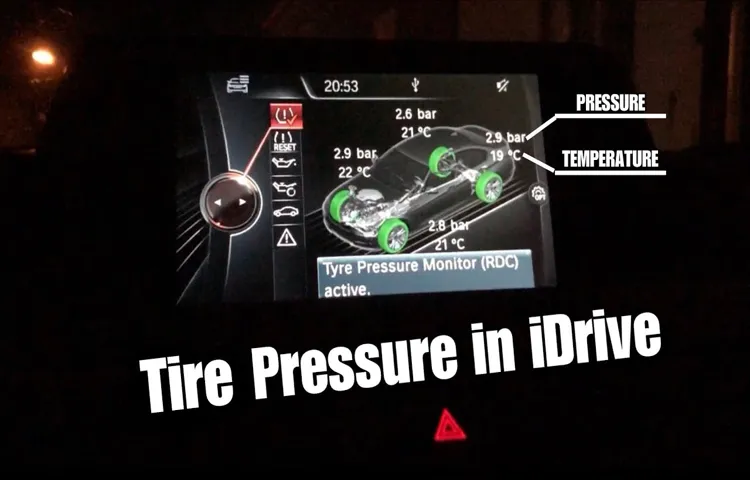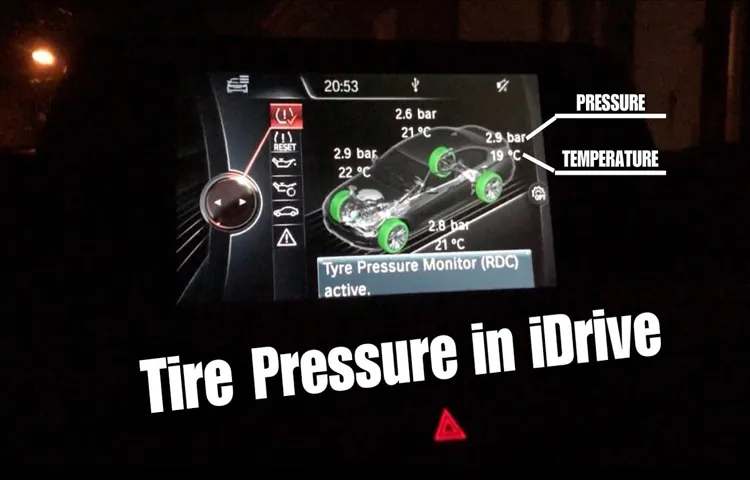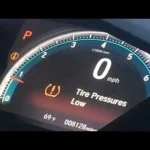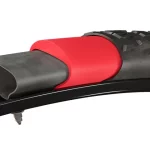When you’re cruising down the highway in your BMW, the last thing you want is to encounter a flat tire. Not only is it frustrating, but it can also be dangerous. Luckily, BMW has developed a tire pressure monitor system that takes the guesswork out of maintaining proper tire pressure.
But how exactly does it work? Well, picture a tiny sensor embedded in your tire that sends real-time data to your dashboard. This data is then analyzed by your car’s computer to determine if your tire pressure falls below the recommended level. If it does, you’ll be alerted so you can take care of it before it becomes a bigger issue.
Pretty cool, huh? In this blog post, we’ll explore the ins and outs of BMW’s tire pressure monitor system, so you can feel confident and secure on the road.
Table of Contents
Introduction
Are you wondering how the BMW tire pressure monitor works? Well, it’s a high-tech system that uses sensors to measure the air pressure in each tire. These sensors transmit data wirelessly to the car’s onboard computer, which then analyzes the readings to determine if any tire is underinflated. If the pressure in a tire is too low, the system alerts the driver with a warning light on the dashboard.
This helps drivers avoid potential safety issues, as underinflated tires can lead to decreased handling, poor fuel economy, and even blowouts. Overall, the BMW tire pressure monitor is a crucial safety feature that ensures drivers stay safe on the road while extending the life of their tires. So next time you see that little warning light, be sure to check your tire pressure and keep your BMW in tip-top shape!
Why Tire Pressure is Important
Tire pressure may seem like a simple thing to overlook, but it can have a significant impact on your car’s performance and safety. The correct tire pressure level depends on your vehicle’s make and model, so it’s essential to check your owner’s manual or the label inside your car door to find the right pressure range. Keeping your tires properly inflated not only improves fuel efficiency and prolongs tire life, but it can also prevent accidents caused by underinflated or overinflated tires.
Low tire pressure can lead to poor handling, decreased stability, and longer stopping distances, while overinflated tires can result in a harsher ride and reduced traction. Taking the time to check your tire pressure regularly can help keep you and your passengers safe on the road.

BMW Tire Pressure Monitor Overview
If you own a BMW, you might have noticed the tiny tire pressure monitor icon on your dashboard indicating that it’s time to check your tires. This is where BMW’s tire pressure monitoring system comes into play. This system helps drivers to keep their vehicle’s tire pressure at an optimal level by sending alerts when tire pressure becomes too low or high.
This is essential because proper tire inflation ensures a smooth and safe ride, better fuel efficiency, and extended tire life. With BMW’s tire pressure monitoring system, you can even set your desired tire pressure level, and the system will alert you if it deviates from the set level. So, say goodbye to manually checking your tire pressure and welcome BMW’s advanced tire pressure monitoring system that ensures your driving experience is always smooth and safe.
Types of BMW Tire Pressure Monitor
If you’re wondering how BMW tire pressure monitor works, then you’ll be intrigued to learn that there are two types of monitoring systems used by BMW. The first one is based on the wheel rotation speed, which is known as indirect TPMS. Each wheel has a sensor that measures the rotational speed, and if a tire deflates, its rotational speed will decline, sending a signal to your dashboard.
The other type of monitoring is direct TPMS, which uses sensors within each tire to measure the pressure in real-time. The information is then transmitted wirelessly to your car’s computer, which alerts you if the pressure drops below a safe level. Both systems are highly accurate and reliable, and they ensure that you always have the right amount of inflation in your tires, which is essential for optimum performance and safety when driving your BMW.
Indirect Tire Pressure Monitoring System (TPMS)
BMW Tire Pressure Monitoring System (TPMS) If you’re a BMW owner, it’s essential to know about the types of tire pressure monitor systems to ensure that you have the right one installed in your vehicle. One of the most common types of TPMS is the Indirect Tire Pressure Monitoring System (TPMS). This system works by using the wheel speed sensors that are already in place to monitor the rotation of the tires.
When a tire loses pressure, it changes the rolling radius, which slows down the rotation of that tire. The TPMS detects the difference in speed and alerts the driver by illuminating the warning light on the dashboard. With an indirect TPMS, you won’t be able to see the exact tire pressure readings, but you will know when there is a problem.
This system is less expensive and easier to maintain than a Direct Tire Pressure Monitoring System (dTPMS), which uses sensors inside the tire to provide precise pressure readings. However, it is essential to understand that indirect TPMS is not as accurate as direct TPMS and may have more false alarms. So, be sure to consult your BMW owner’s manual to determine which type of TPMS your vehicle has and how to properly maintain it.
Direct Tire Pressure Monitoring System (TPMS)
BMW Tire Pressure Monitor BMW vehicles use two types of Tire Pressure Monitoring Systems (TPMS): direct and indirect. The direct TPMS system employs sensors that attach to the wheels and measure the tire pressure in real-time. Whenever the pressure falls below the recommended threshold, the system alerts the driver to add air to the tires.
On the other hand, the indirect TPMS system uses wheel speed sensors to detect changes in tire rotation, which can indicate low tire pressure. However, indirect TPMS is not as reliable as direct TPMS. Many BMW models come equipped with the direct TPMS, but it’s essential to check your owner’s manual to be sure.
Regardless of the type of TPMS, it’s essential to check your tire pressure regularly to ensure the wheels are properly inflated. Not only does the correct air pressure improve the car’s performance, but it also increases safety on the road.
How BMW TPMS Works?
Have you ever wondered how BMW tire pressure monitor works? The system uses sensors located in each tire to measure the pressure level. These sensors send the information to the central control unit, which displays the pressure readings on the dashboard. If the pressure level drops below the recommended level, the system alerts the driver through a warning light, indicating the specific tire that needs attention.
The BMW TPMS also considers temperature changes and adjusts the pressure readings accordingly to ensure accurate results. The system helps to improve fuel efficiency, reduce tire wear, and prevent accidents caused by underinflated or overinflated tires. So, the next time you see the TPMS warning light, make sure to check your tire pressure and avoid any potential dangers on the road.
Overall, BMW TPMS is a smart and helpful technology that saves both time and money, ensuring a safer and more comfortable driving experience.
TPMS Sensor
BMW TPMS, TPMS Sensor Have you ever wondered how the TPMS sensor in your BMW works? The TPMS (Tire Pressure Monitoring System) is an innovative safety feature to ensure your wheels have the right pressure. The TPMS sensor in your BMW will monitor the air pressure, temperature and wheel rotation speed of each tire in real-time. If the tire pressure is low or high, the system will send an alert warning to the driver on the dashboard.
The BMW TPMS sensor constantly measures the tire pressure levels and sends data to the ECU (Engine Control Unit). The ECU then processes the data to ensure your tire pressure is correct. Low tire pressure can lead to blowouts, reduced gas mileage, and handling difficulties, so it is essential to have a reliable BMW TPMS system.
Overall, TPMS is crucial for keeping your BMW tires in top condition and avoiding potential safety issues on the road.
On-board computer
BMW TPMS, on-board computer The on-board computer in a BMW plays a crucial role in monitoring the tire pressure of the vehicle. The BMW TPMS, or Tire Pressure Monitoring System, is designed to keep track of the tire pressure and alert the driver if it drops below a certain level. This is important because low tire pressure can lead to decreased fuel efficiency, reduced tire life, and even dangerous blowouts.
The system works by using sensors that are located inside each tire. These sensors measure the tire pressure and send this information to the on-board computer, which can then display the pressure readings on the dashboard. If the pressure drops below a predetermined level, the computer will trigger a warning light or audible alert to inform the driver that there is an issue.
Overall, the BMW TPMS is an important safety feature that helps drivers keep their tires properly inflated and safe.
Warnings and Alerts
BMW TPMS, tire pressure monitoring system The BMW TPMS, or tire pressure monitoring system, is a crucial safety feature that ensures the tires on your vehicle maintain proper inflation. The system works by utilizing sensors placed inside each tire to constantly monitor pressure levels. If the pressure drops below the recommended level, the TPMS sends a signal to the dashboard warning light, notifying the driver of the issue.
This warning should never be ignored as driving on underinflated tires can lead to decreased fuel efficiency, decreased handling, and an increased risk of blowouts or accidents. Although the system works automatically, it’s important to check the pressure regularly and maintain them to ensure optimal performance and safety. By keeping an eye on your tire pressure and heeding the warning signals from the BMW TPMS, you’ll be able to stay safe and avoid unnecessary expenses associated with tire maintenance and replacement.
Benefits of BMW TPMS
If you’re wondering how BMW’s tire pressure monitor works, the answer is simple yet impressive. BMW uses a direct TPMS system, which means each wheel has its own sensor that reads the tire pressure and sends that data to the car’s computer. This system is incredibly beneficial because it provides real-time and accurate information about the tire pressure, allowing drivers to maintain optimal tire pressure for their BMW models.
With BMW’s TPMS, drivers can ensure better fuel efficiency, longer tire life, and more safety on the road. In short, BMW’s TPMS is a game-changer that helps drivers keep their vehicles running smoothly and safely.
Fuel Efficiency and Performance
BMW TPMS, fuel efficiency, performance BMW TPMS stands for Tire Pressure Monitoring System, which is a technology that enables drivers to keep an eye on the pressure of their car’s tires. This system is ideal for those who prioritize fuel efficiency and performance while on the road. By having a proper TPMS in place, you can easily maintain the right tire pressure, which will result in improved fuel economy, reduced tire wear, and a smoother driving experience.
The benefits of BMW TPMS do not stop there. It also ensures your safety while driving. Proper tire pressure can help you avoid accidents caused by underinflated tires or blowouts, particularly when driving at high speeds.
In short, by choosing BMW TPMS, you are not only ensuring better fuel economy and performance, but you’re also investing in your safety.
Safety and Tire Maintenance
BMW TPMS, Tire Maintenance, Safety Are you tired of worrying about the state of your tires on the road? One solution to this stress is utilizing BMW’s TPMS, or tire pressure monitoring system, which offers a range of benefits for drivers. This system actively monitors tire pressure and alerts you to any changes in real-time, giving you peace of mind while on the road. Proper tire maintenance is crucial for safety, and the BMW TPMS can help you stay on top of it.
By ensuring that your tires are properly inflated, you can improve fuel efficiency, extend the life of your tires, and increase overall safety. So why not invest in the BMW TPMS today and enjoy the added security it provides while driving?
Conclusion
In conclusion, the BMW tire pressure monitor is like a personal physician for your car’s tires. It constantly monitors the pressure and temperature, alerting you when something is off. It’s like having a little genie in your car, making sure your tires are healthy and happy.
So while you focus on the joys of driving, let the BMW tire pressure monitor take care of the rest, ensuring a smooth and safe ride.”
FAQs
What is the purpose of a tire pressure monitoring system in a BMW?
The tire pressure monitoring system in a BMW is designed to monitor the tire pressure and alert the driver when the pressure is low, ensuring proper tire inflation and better safety on the road.
How does a tire pressure monitoring system work in a BMW?
The tire pressure monitoring system in a BMW uses sensors mounted inside each tire to send tire pressure data to a central computer system. This system then alerts the driver if the tire pressure is too low or too high.
What are the benefits of using a tire pressure monitoring system in a BMW?
The benefits of using a tire pressure monitoring system in a BMW include improved safety, longer tire life, improved fuel economy, and reduced likelihood of tire blowouts or other tire-related issues.
How often should I check the tire pressure in my BMW if I have a tire pressure monitoring system?
Even with a tire pressure monitoring system, it is recommended that you check your tire pressure at least once a month or before long road trips to ensure proper inflation levels.
Can a tire pressure monitoring system in a BMW detect other tire issues besides pressure?
While the main function of a tire pressure monitoring system is to monitor tire pressure, some advanced systems can also detect other tire issues such as a puncture or leak, although this may vary based on the specific model of BMW.
What happens if the tire pressure monitoring system in my BMW fails?
If the tire pressure monitoring system fails in your BMW, you may receive false warnings or no warnings at all about low tire pressure. It is important to have this system repaired or replaced as soon as possible to ensure optimal safety and performance.
Are tire pressure monitoring systems standard on all BMW models?
While tire pressure monitoring systems are standard on many newer BMW models, they may not be available or standard on older or entry-level models. It is important to check with your BMW dealership to determine if your specific model has this feature.



